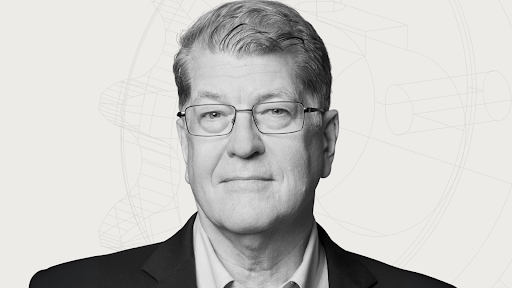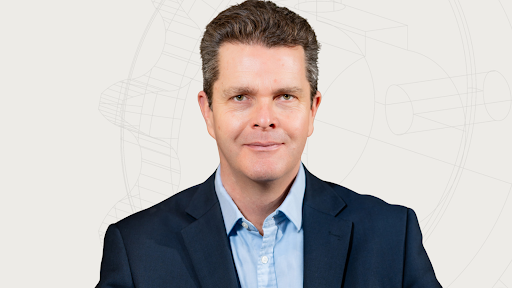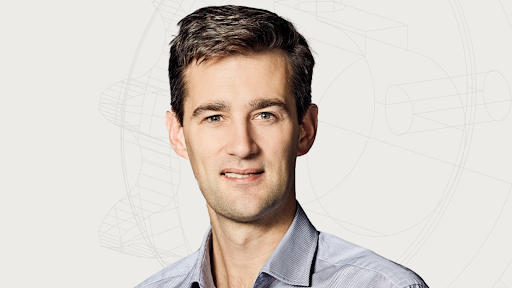
In this Telescope Lens Q&A, we talk with Steve Clemons, editor-at-large of The National Interest and CEO of Widehall, a global public affairs company. From the challenge of workforce disruption to the need for bold leadership in an AI-driven world, Steve shares how his work convening diverse voices is helping us navigate profound technological and social change.
____
What do you work on daily, and how is that work connected to Telescope?
On the intellectual and editorial front, I help edit the National Interest, which is a well-known political and foreign affairs journal. And frankly, I'm out there prospecting for the best ideas in global affairs one can find. The second thing I do is I help organize gatherings and convenings around major issues of the day in my work at Widehall. Both of these are being touched right now by the opportunities and risks of new technology. I spend a lot of time thinking about this technological tsunami that's coming our way and why it is so important for us to get our heads around that.
What’s an idea that could really change things for the better in the next five years?
I've been part of the process of bridging and helping the American Federation of Teachers connect with some of the big purveyors of AI to look at what you do with a lot of stranded talent in the country that graduates from high school and for whatever reason chooses not to go on to college. Career technical education—what used to be called vocational education—is really a template of partnership that tries to bring people into an American version of apprenticeships and experiential learning. We have really, really underinvested in those options for high school students.
Eric Braverman has a really interesting idea of a sovereign wealth fund for talent. Looking at how you can invest in people, get some gains, and begin rolling over money—I think it’s a really brilliant idea. It’s another dimension of ways in which we might have to think differently about our future than we are right now.
How does this work connect to security and prosperity globally?
When it comes to the security and prosperity of the world, there are a lot of transnational security and safety questions out there. There's climate change, there's mass migration, organized crime, big, big issues. But right now, nationalism is rising and international cooperation is being knocked back. For me, a lot of what I'm thinking about is how to change the vector for a lot of Americans who feel left behind. We have to make sure they're not a victim of technological change, that we give them the tools to surf these new opportunities. That enhances global security and safety.
Who is inspiring you right now in advancing security and prosperity?
I like Brad Smith, the president and vice chairman of Microsoft, in part because he's honest. He wrote a book called Tools and Weapons that really made an impact on me. All of these new technologies can be used for harm or for good and need regulation. We need guardrails. I think Brad is one of the few people willing to go out publicly and acknowledge that.
I'm impressed with Randi Weingarten. The biggest anxiety that American labor has right now is the coming disruption from AI. The fact that she's allying herself with companies that are bringing AI into place to help strengthen her union, her members, and most importantly children—that is risky. That kind of risk-taking and honesty are the kinds of things that impress me.
What questions about technology’s role in society should more people be asking?
We’re way too comfortable with laissez-faire, invisible hand economics and the wreckage it has caused—except there are people behind the wreckage, and there’s culture behind the wreckage, and there’s lost skills and talent that is extremely important for society down the road. You may wake up and say, wow, we don’t have anyone that does that anymore. I think that’s one of the issues that should be on the front agenda. We’ve got to get the balance in a better place.
What advice would you give young people looking to shape a more secure and prosperous future through tech?
Sit in the front of the class, not the back of the class. Read. Learn how to critically think, but realize that AI is going to be a tool that enables you. Don’t become overly dependent on AI to answer all your questions—learn how to ask the right questions. Be situationally aware, aware of history, aware of everything, and become a practitioner of new tools. I’d say make your own weather as opposed to becoming a victim of that weather.
Watch a video clip from the interview on our YouTube channel



.png)
In this Telescope LENS Q&A, we talk with David Winickoff, Head of the Responsible Innovation Unit at the Organization for Economic Cooperation and Development (OECD). From his perspective bridging academic expertise with international policy development, David shares insights on how to realize the enormous potential of emerging technologies while managing risks—and why anticipating technological change, rather than reacting to it, is key to building a better future.
.png)
In this Telescope LENS Q&A, we talk with Dr. Rumman Chowdhury, CEO and founder of Humane Intelligence Public Benefit Corporation and co-founder of the nonprofit Humane Intelligence. From her perspective as both a social scientist and AI ethics pioneer, Rumman shares insights on bridging the gap between technology development and what people actually want to see in the world—and how everyday voices can shape the AI systems being built around us.
.png)
In this Telescope LENS Q&A, we talk with Erika Staël von Holstein, Co-Founder and Chief Executive of Re-Imagine Europa. Drawing from her expertise in neuroscience and narrative strategy, Erika shares insights on how our thinking patterns shape reality, why we need to listen to those we disagree with, and how AI can help us build wiser technology by understanding the limits of our own narratives.
.png)
In this Telescope LENS Q&A, we talk with Michelle Giuda, CEO of the Krach Institute for Tech Diplomacy at Purdue University. From her perspective as both a former student athlete and a leader in global technology policy, Michelle shares insights on how the United States and its allies can deliberately shape a future of freedom, prosperity, and security, powered by trusted technology and new models of collaboration.
.png)
In this Telescope LENS Q&A, we talk with Kristen Edgreen Kaufman, Senior Vice President of Global Impact Initiatives at the U.S. Council for International Business (USCIB). With extensive experience bridging global public policy and private sector interests, Kristen shares insights on fostering innovation ecosystems, building coalitions across political divides, and ensuring American competitiveness in emerging technologies.
.png)
In this Telescope LENS Q&A, we talk with Chris Massey, founder and CEO of The Brds Nst. Drawing from his diverse experience across government and private sector, Chris shares insights on demystifying government for entrepreneurs, the transformative potential of AI across healthcare and elder care, and how innovation can serve both security and prosperity when we all "row in the same direction."
.png)
In this Telescope LENS Q&A, we talk with Heather Panton, General Counsel at Labrys Technologies. A former national security lawyer in the UK government who transitioned to the startup space two years ago, Heather shares insights on building compliance into innovation from the ground up, bridging the gap between private sector innovation and government needs, and creating technology that serves the public good.


